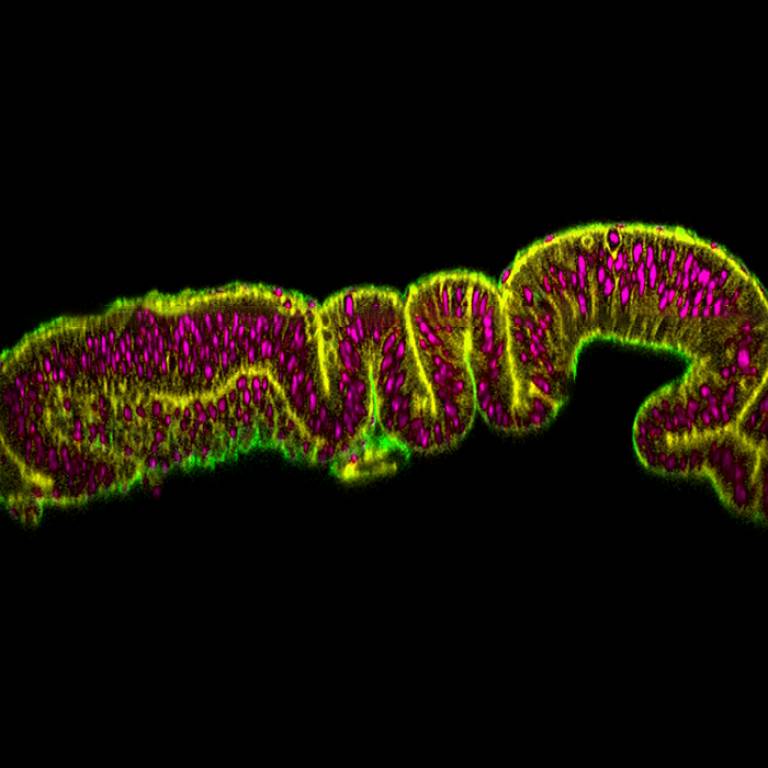New publication in Current Biology for Mao Lab
14 May 2020
Tissue Mechanics Regulate Mitotic Nuclear Dynamics during Epithelial Development.

In a recent publication in Current Biology, the Mao Lab and colleagues investigated how changes in tissue architecture during growth influence mitotic nuclear migration.
Abstract
Cell divisions are essential for tissue growth. In pseudostratified epithelia, where nuclei are staggered across the tissue, each nucleus migrates apically before undergoing mitosis. Successful apical nuclear migration is critical for planar-orientated cell divisions in densely packed epithelia. Most previous investigations have focused on the local cellular mechanisms controlling nuclear migration. Inter-species and inter-organ comparisons of different pseudostratified epithelia suggest global tissue architecture may influence nuclear dynamics, but the underlying mechanisms remain elusive. Here, we use the developing Drosophila wing disc to systematically investigate, in a single epithelial type, how changes in tissue architecture during growth influence mitotic nuclear migration. We observe distinct nuclear dynamics at discrete developmental stages, as epithelial morphology changes. We use genetic and physical perturbations to show a direct effect of cell density on mitotic nuclear positioning. We find Rho kinase and Diaphanous, which facilitate mitotic cell rounding in confined cell conditions, are essential for efficient apical nuclear movement. Perturbation of Diaphanous causes increasing defects in apical nuclear migration as the tissue grows and cell density increases, and these defects can be reversed by acute physical reduction of cell density. Our findings reveal how the mechanical environment imposed on cells within a tissue alters the molecular and cellular mechanisms adopted by single cells for mitosis.
Links
- Research paper in Current Biology
- Yanlan Mao's academic profile
- Natalie Kirkland talks about this publication
- UCL MRC Laboratory for Molecular Cell Biology
- UCL Institute for the Physics of Living Systems
 Close
Close

